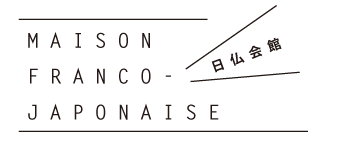vendredi 01 novembre 2013
- Groupe de recherche
sur la culture imprimée à l'époque d'Edo
- The drivers of innovation in the Japanese funeral industry
Groupe de recherche
sur la culture imprimée à l'époque d'Edo
[ Séminaire de recherche fermé ]en japonais sans traduction
| vendredi 01 novembre 2013 / 17 h - 19 h | |
| salle 601 | |
| SUZUKI Nao (univ. de Chiba) |
* À l'exception des séminaires fermés de recherche ou des événements exceptionnels requérant une inscription payante, l'accès aux manifestations de la MFJ est libre et gratuit. Prière de vous inscrire.
Lunch Seminar on Japanese Economy and Society
en anglais sans traduction
The drivers of innovation in the Japanese funeral industry
[ Séminaire ]en anglais sans traduction
| vendredi 01 novembre 2013 / 12 h 30 - 14 h | |
| salle 601 | |
| Natacha Aveline-Dubach (CNRS - univ. Paris I Panthéon Sorbonne) |
 |
|
Profil : Natacha Aveline-Dubach is CNRS professor at university Paris I-Panthéon Sorhonne (Géographie-Cités). She stayed more than ten years in Japan, conducting research on land markets and urban policies with a visiting scholar affiliation in several universities (Kyoto, Tokyo, Waseda, Keio). She also served as director of the North-Asia CNRS regional office (based in Tokyo). Recently, she published an edited collection entitled "The Invisible Population: The Place of the Dead in East-Asian Megacities. Résumé : The Japanese funeral rituals and spaces are currently undergoing rapid change due to the weakening of the traditional ie-based grave system. A true innovation process is under way, bringing novelty in ashes disposal modes and mortuary services in the biggest Japanese cities. This presentation examines the drivers of innovation in the mortuary field. Three major factors are highlighted: 1. The demographic and societal change, which not only entails an exploding demand for burial space, but also radically transforms the way burial is considered. 2. The distinctive 'plasticity' of the Japanese city, which allows the transfer of cemeteries from one place to another, and even their full transformation into indoor 'coin-locker' ossuaries (rokka-shiki nôkotsudô). 3. The cross -fertilization of ideas and approaches among three major players of the funeral industry, i. e. Buddhist communities, NPOs and marble masons. Modérateur : Jean-Michel BUTEL (MFJ, UMIFRE 19) Organisation : Bureau français de la MFJ Co-organisation : CCIFJ Flyer en pdf Compte-rendu |
* À l'exception des séminaires fermés de recherche ou des événements exceptionnels requérant une inscription payante, l'accès aux manifestations de la MFJ est libre et gratuit. Prière de vous inscrire.
Agenda du Bureau Français > novembre 2013












